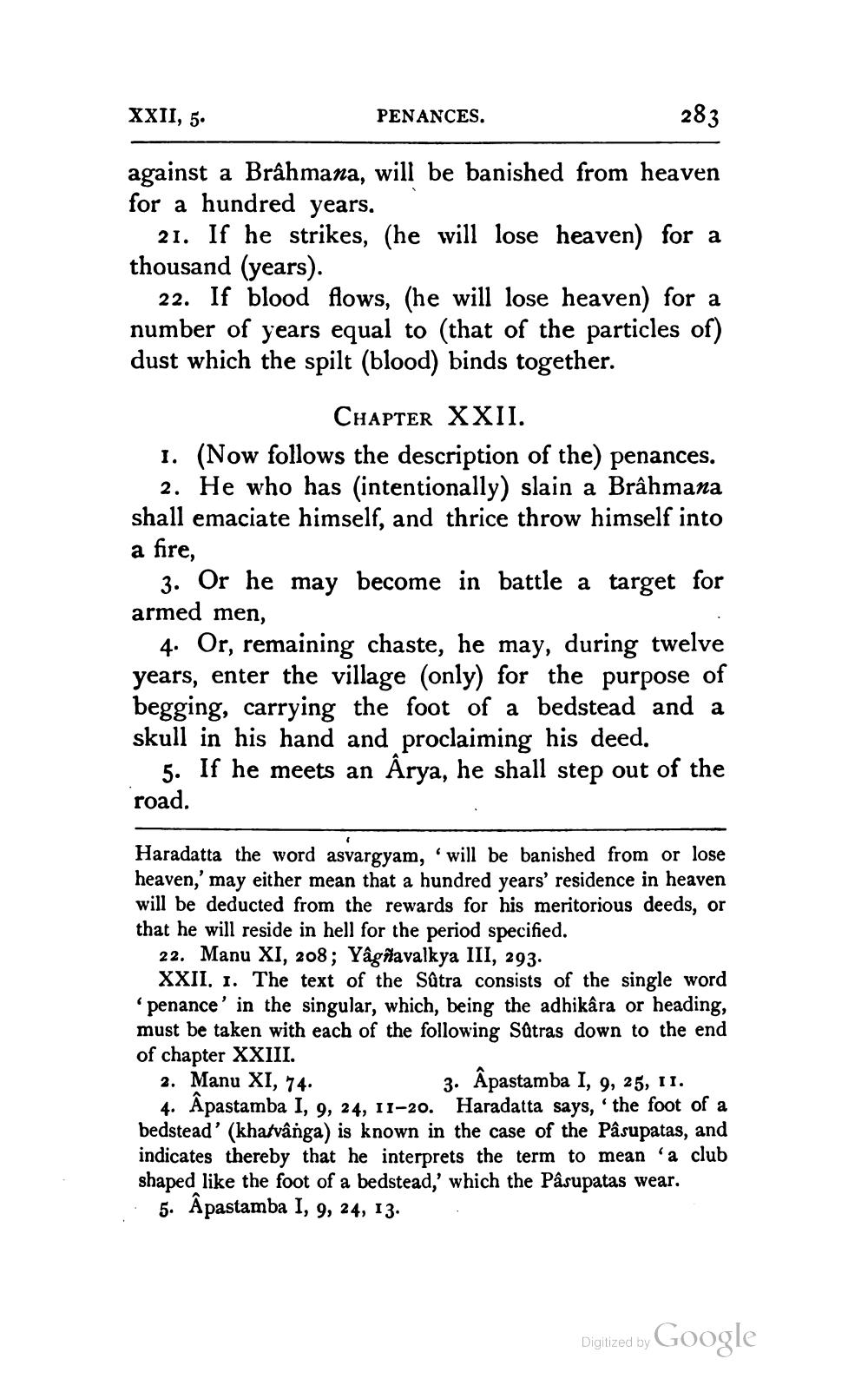________________
283
against a Brahmana, will be banished from heaven for a hundred years.
XXII, 5.
PENANCES.
21. If he strikes, (he will lose heaven) for a thousand (years).
22. If blood flows, (he will lose heaven) for a number of years equal to (that of the particles of) dust which the spilt (blood) binds together.
CHAPTER XXII.
1. (Now follows the description of the) penances. 2. He who has (intentionally) slain a Brâhmana shall emaciate himself, and thrice throw himself into a fire,
3. Or he may become in battle a target for armed men,
4. Or, remaining chaste, he may, during twelve years, enter the village (only) for the purpose of begging, carrying the foot of a bedstead and a skull in his hand and proclaiming his deed.
5. If he meets an Arya, he shall step out of the road.
Haradatta the word asvargyam, 'will be banished from or lose heaven,' may either mean that a hundred years' residence in heaven will be deducted from the rewards for his meritorious deeds, or that he will reside in hell for the period specified.
22. Manu XI, 208; Yâgñavalkya III, 293.
XXII. 1. The text of the Sûtra consists of the single word 'penance' in the singular, which, being the adhikâra or heading, must be taken with each of the following Sûtras down to the end of chapter XXIII.
2. Manu XI, 74.
3. Âpastamba I, 9, 25, 11.
4. Âpastamba I, 9, 24, 11–20. Haradatta says, ' the foot of a bedstead' (kha/vânga) is known in the case of the Pâsupatas, and indicates thereby that he interprets the term to mean 'a club shaped like the foot of a bedstead,' which the Pâsupatas wear. 5. Apastamba I, 9, 24, 13.
Google
Digitized by




